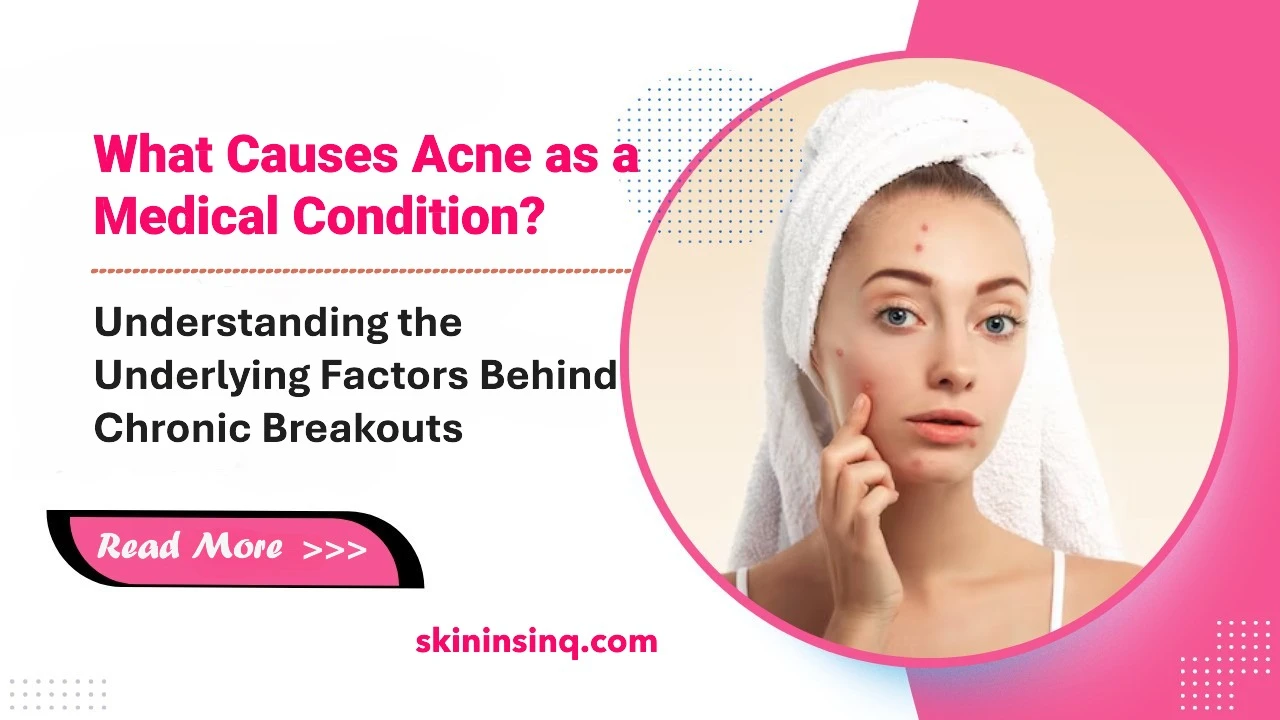What Causes Acne as a Medical Condition? Understanding the Underlying Factors Behind Chronic Breakouts
What Causes Acne as a Medical Condition? Understanding the Underlying Factors Behind Chronic Breakouts
Acne is more than just a cosmetic concern or the occasional pimple—it is a chronic medical condition that affects millions of people worldwide. While many associate acne with teenage years, it can persist or even begin in adulthood, impacting self-esteem and quality of life. Understanding acne as a medical condition involves recognizing the complex biological, hormonal, and environmental factors that contribute to its development and persistence.
What Is Acne?
Acne, medically known as acne vulgaris, is a skin condition that occurs when hair follicles become clogged with oil (sebum), dead skin cells, and bacteria. It often presents as blackheads, whiteheads, papules, pustules, nodules, or cysts, primarily on the face, back, chest, and shoulders.
Acne can range from mild to severe and may lead to scarring, pigmentation issues, and psychological stress if left untreated.
The Four Main Causes of Acne as a Medical Condition
1. Excess Sebum (Oil) Production
The sebaceous glands in the skin produce sebum to keep the skin moisturized. In people with acne, these glands become overactive, producing too much oil. This excess oil can clog pores and create an environment where bacteria thrive.
2. Clogged Hair Follicles
Dead skin cells that are not properly shed can accumulate in the hair follicles, mixing with sebum to form plugs. These clogged follicles can result in whiteheads or blackheads. If the blockage becomes inflamed, it can develop into pustules or cysts.
3. Bacterial Growth (Cutibacterium acnes)
A naturally occurring bacterium on the skin, Cutibacterium acnes (formerly Propionibacterium acnes), plays a role in the development of acne. When trapped in blocked pores, it multiplies and triggers an immune response, leading to inflammation, redness, and pus formation.
4. Hormonal Imbalances
One of the primary drivers of acne—especially during puberty, menstruation, pregnancy, or conditions like polycystic ovary syndrome (PCOS)—is hormonal fluctuation. Increased levels of androgens (male hormones present in both sexes) stimulate sebum production, raising the risk of clogged pores and breakouts.
Additional Contributing Factors
-
Genetics: Acne can run in families, meaning if your parents had acne, you are more likely to develop it.
-
Medications: Certain drugs like corticosteroids, lithium, and some birth control pills can trigger or worsen acne.
-
Stress: While not a direct cause, stress can worsen acne by increasing cortisol levels and inflammation.
-
Diet: Foods with a high glycemic index (like sugary snacks and white bread) or dairy may worsen acne in some individuals, though the connection varies by person.
-
Skincare Products: Comedogenic (pore-clogging) products can contribute to acne, especially if not properly cleansed from the skin.
When Acne Becomes a Medical Concern
When acne becomes chronic, painful, or leads to scarring, it should be treated as a medical issue rather than a cosmetic one. Dermatologists may recommend treatments such as:
-
Topical or oral antibiotics
-
Retinoids
-
Hormonal therapies (e.g., birth control pills, anti-androgens)
-
Isotretinoin for severe cases
Conclusion
Acne is a complex skin disorder influenced by multiple internal and external factors. Recognizing it as a medical condition is essential for proper diagnosis, treatment, and prevention of long-term effects. If you’re struggling with persistent or severe acne, consulting a dermatologist is the first step toward managing it effectively and improving your skin health.

Related Blog
Can People with Dry Skin Also Have Acne? Understanding Breakouts Beyond Oily Skin Types
Aug 2, 2025 by Admin
General Acne
What Causes Oily Skin and Can It Be Managed Naturally? Exploring Root Causes and Gentle Solutions
Aug 2, 2025 by Admin
General
Does Popping Pimples Always Make Acne Worse? The Risks and Realities of Squeezing Breakouts
Aug 2, 2025 by Admin
General Acne
Do Oily Foods Make Pimples Worse? Uncovering the Truth Behind Diet and Breakouts
Aug 2, 2025 by Admin
General Acne